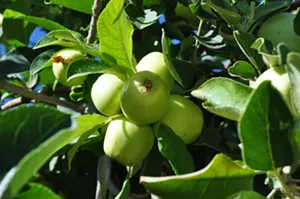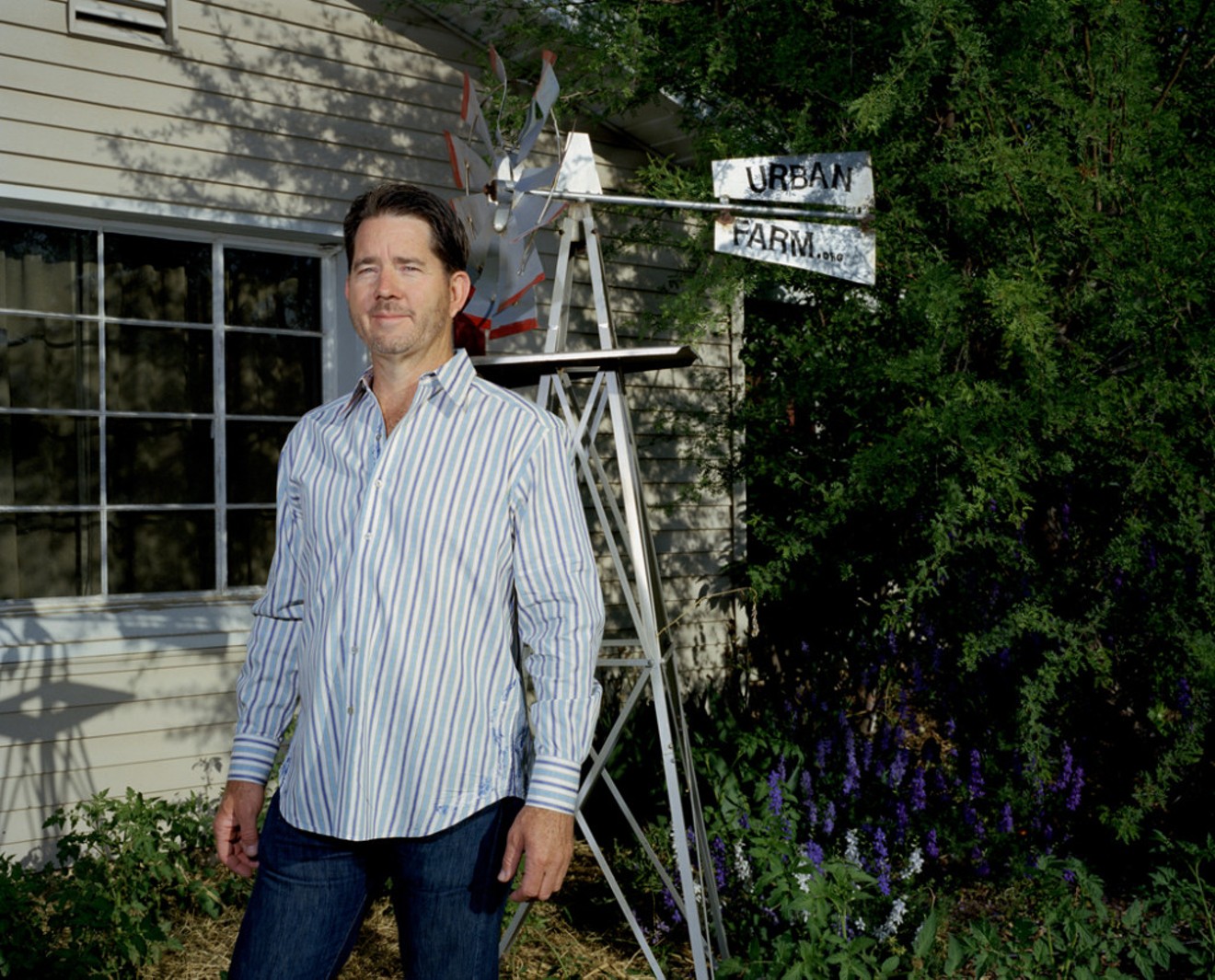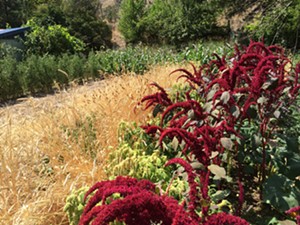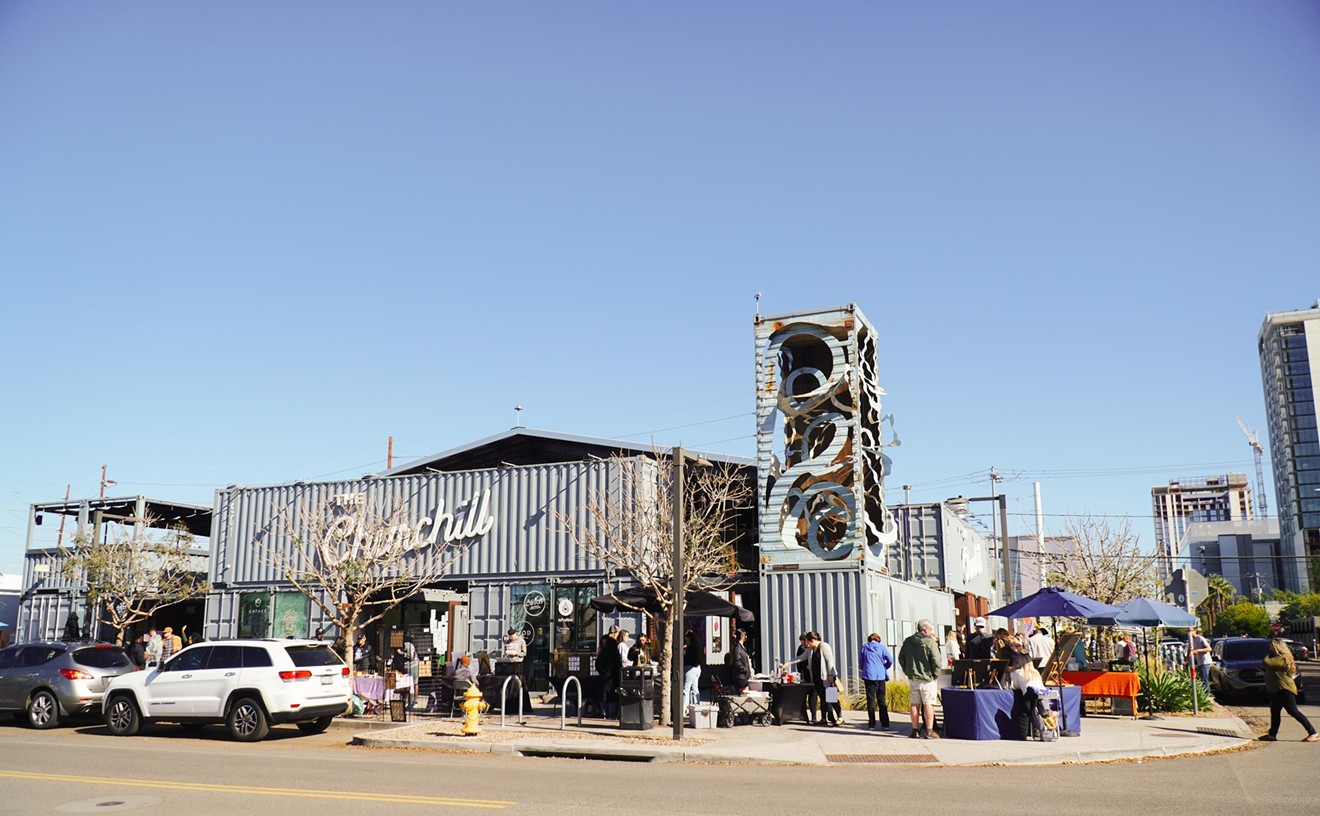In 1974, when Greg Peterson was in the eighth grade, he wrote a paper on how people were overfishing the oceans. That assignment was the catalyst for Peterson's wanting to change the global food system and be kind to the Earth. "I knew back in the mid-1970s that there was something inherently wrong with the way we were eating on the planet," he says.
Caring about the Earth and wanting to do better is what gets Peterson up in the morning. "I am the person on the planet responsible for transforming our global food system. And that's not a burden for me," he says. But his connection to the ground isn't just cerebral. He remembers that at an early age, he was interested in gardening and digging in the backyard. He also confesses that watching Jacques Cousteau bolstered his desire to be good to the land.
As he grew older, he continued to nurture that vision. In 1989, when he began looking for a house, one of Peterson's primary concerns was finding a place that had flood irrigation; he knew he could grow his own food on flood-irrigated property. He also wanted to find land where he could grow fruit trees. That endeavor ultimately became what Phoenicians know as The Urban Farm, an environmental showcase home where Peterson teaches people how to garden and grow their own food. Today the Urban Farm is also a comprehensive online resource, offering classes, a podcast and expert advice for home gardeners.
In 1991, Peterson, at the time pursuing a career in technology, began to study the concept of permaculture — designing agricultural systems to be self-sufficient — and that sparked his desire to teach people about gardening. He wanted to share his newfound knowledge with others, and eventually began to give lectures and offer tours of his home. Starting in March 2002, he set up a tent in the front yard on Saturdays. At first, no one showed up.
The lack of an audience didn't deter Peterson. He continued to set up his tent, but using a different strategy. He sent out notices to his email list to let people know about the tours in advance, which helped create interest.
"The whole point of the tours was to open up the yard for people to see an edible landscape as a way to nourish and support our local diet. I plant seeds that, when they go to seed, they grow food," Peterson explains. He offers that morning's meal as an example: "I had an omelet with mushrooms, Swiss chard and kale that came out of my yard."
This month, more than 200 people showed up for a tour.
Some early visitors to the farm wanted to know about fruit trees and which ones grew well in the low desert. "We turned those inquires into educating people about fruit trees, as well as selling them," says Peterson. Free online classes begin in September and go year-round; speakers are brought in to talk about fruit trees and how to grow them. Peterson now sells about 5,000 fruit trees a year.
Part of The Urban Farm's goal is "getting people excited about growing food and planting fruit trees in their yard and helping them understand that they can be farmers [whether] they're farming in their front yard, backyard, or in the community," says Peterson.
"This is the most important piece of the conversation," he adds. "By creating this farm, we become the torch carrier for the local food movement, for the local food conversation, and start a spark that attracts people's interests in this food culture."

Peterson hasn't decided what he will grow in Asheville, but he may create an apple orchard.
The Urban Farm
Turning this philosophy into a movement that extends beyond Phoenix is important to Peterson. This month, The Urban Farm will change ownership, as Peterson is moving to Asheville, North Carolina.
"[The new owners] will no longer call it The Urban Farm; they're going to come up with their own name for it," he says. But it won't be the end of the businesses that Peterson has built here. The Urban Farm nursery, the podcast and all of the online classes will continue, and he plans to come to Phoenix for several weeks in October and January to interact with people and to deliver fruit tree orders.
As for his next steps, Peterson has bought two acres of pasture in North Carolina that could potentially turn into an apple orchard or space to grow edible mushrooms. "One of the things that I want to explore is what it would take to grow or locally source most of my food," he says, "because one of the biggest food system problems is the amount of waste produced in delivering food." He's looking for an opportunity to explore a local food economy.
As he prepares to leave, Peterson expresses his gratitude for the local community. "The level of love and support that I've been given over the years by the Phoenix community is overwhelming," he says. "And one of the hardest things is actually leaving my home. I've been here for 54 years, and uprooting myself and moving 1,900 miles across the country is not a small thing."














